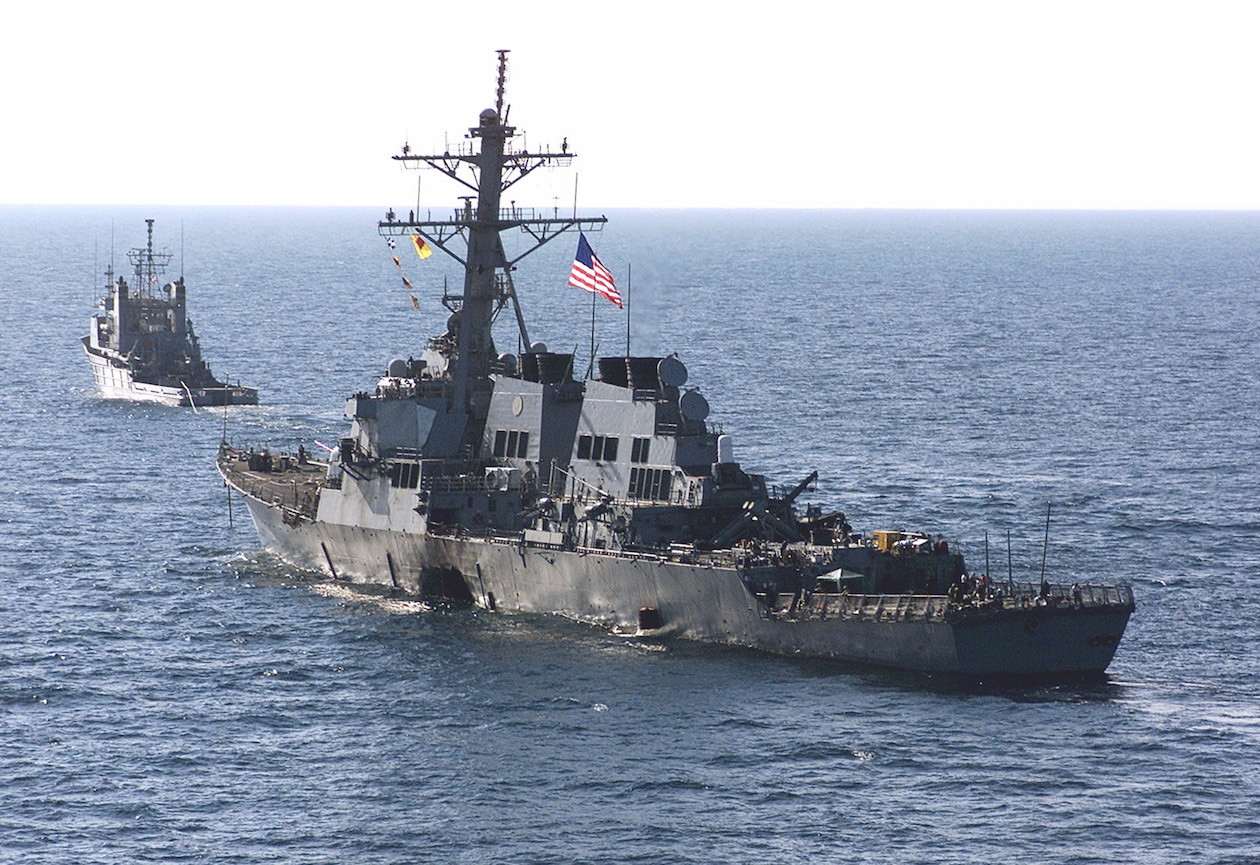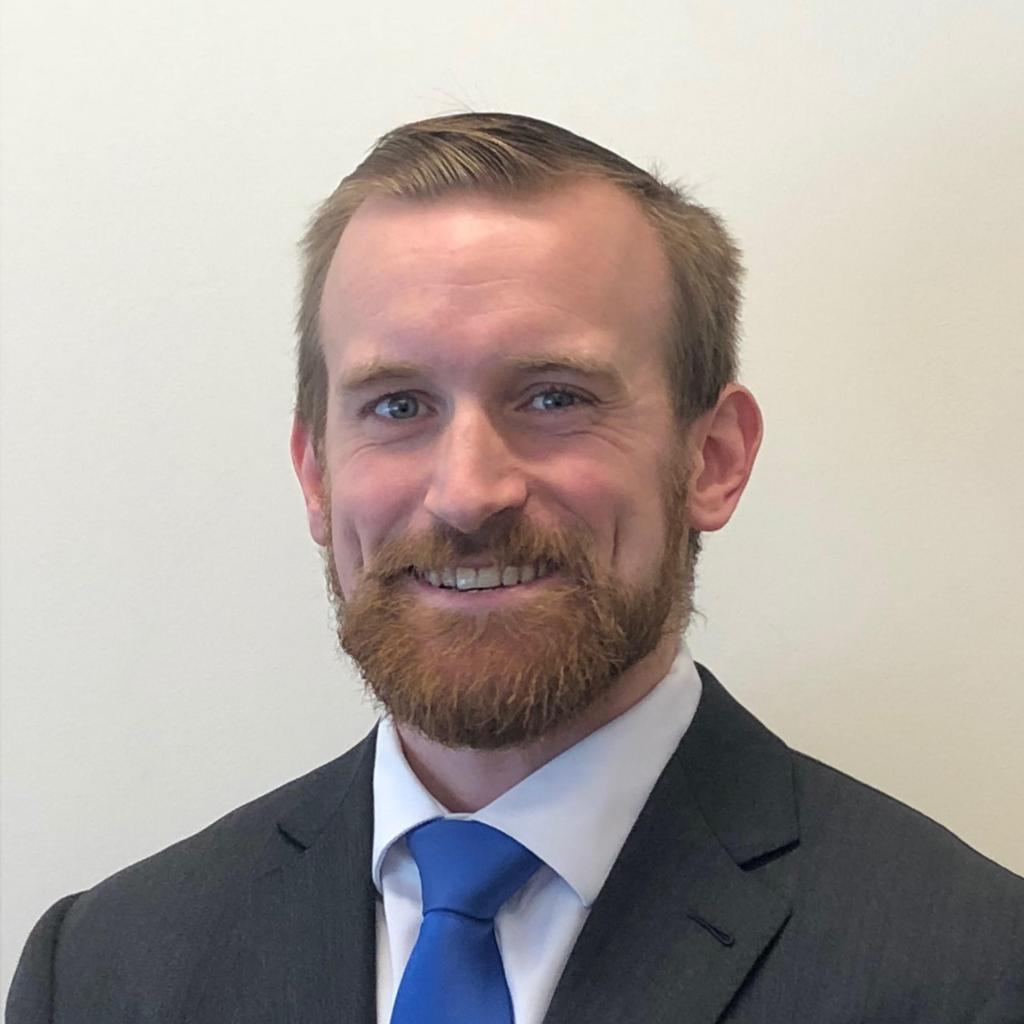Last Week at the Military Commissions: More Debate on Defense Team Resignations and Evidence Pre-Admission in al-Nashiri
This past week, the military commission in United States v. al-Nashiri reconvened in open session for the first time since November, with open sessions on Jan. 19 and 22.

Published by The Lawfare Institute
in Cooperation With

This past week, the military commission in United States v. al-Nashiri reconvened in open session for the first time since November, with open sessions on Jan. 19 and 22. The commission addressed the ongoing absence of all but one member of defendant Abd al-Rahim al-Nashiri’s defense team, and directed the sole present counsel, Lt. Alaric Piette, to engage in “self-help” to prepare for trial. Continuing with the pretrial admission of evidence, the commission heard from 15 witnesses who testified about the process of gathering evidence from the USS Cole attack and attested to the authenticity of the evidence introduced.
Al-Nashiri’s Presence at Trial
Military judge Col. Vance Spath began the Jan. 19 session by explaining that al-Nashiri’s presence was compulsory while the commission addressed the ongoing absence of al-Nashiri’s learned counsel, Richard Kammen, and two other members of his defense team, Mary Spears and Rosa Eliades.
On Jan. 22, Piette raised the issue of al-Nashiri’s persistent motion sickness and asked that the defendant be brought to court in a van rather than a small car, but Spath declined to rule on the issue for the moment. Prosecutor Col. John Wells informed the commission that the van normally provided for al-Nashiri was in maintenance, so the government asked Joint Task Force personnel to do test rides of a smaller vehicle with al-Nashiri to help him get accustomed.
Defense Team Staffing and Objections
To start the Jan. 19 session, Spath discussed a conference he convened under Rule 802 of the Rules for Military Commissions at Andrews Air Force Base at which he instructed the government to subpoena Eliades and Spears. Wells detailed the government’s attempts to serve both attorneys with subpoenas. The prosecutor also asserted that paragraph 13-4 of the Regulation for Trial by Military Commission (RTMC) gives Spath the authority to order government employees—including Eliades and Spears—to appear before the commission. Spath left it to the prosecution to continue its efforts to bring Eliades and Spears in for the current session or subsequent session in February. He expressed his interest in hearing their explanations as to why they had abandoned their representation of al-Nashiri and ignored Spath’s orders to return.
Chief defense counsel Col. Wayne Aaron appeared before the commission as the supervisor of the defense team but not as a counsel of record. The judge questioned Aaron about the defense team’s decision to remove detailed counsel from the case and leave Piette as the sole defense counsel present. Aaron and Piette argued, separately, that the absence of learned counsel prevented the defense team from participating in the commission beyond working to obtain new learned counsel. The defense argued that the RTMC requires learned counsel for capital proceedings, without qualification for whether or not it’s practicable, and that pretrial proceedings should therefore cease until learned counsel is again present. In response, Spath reiterated his previous ruling that the Military Commissions Act of 2009 provides for the defendant to have learned counsel only “to the extent practicable,” and that the voluntary absence of learned counsel cannot derail the proceedings. Spath further asserted that the defense, in failing to examine witnesses during these pretrial admissions and refusing to detail additional attorneys, was pursuing an intentional strategy designed to increase al-Nashiri’s chance of favorable judgment on an appeal.
The chief defense counsel noted that he requested funding approval for an unnamed learned counsel, but expressed discomfort with answering Spath’s questions about the attorney’s security clearance. When the judge insisted, Aaron divulged that the person being considered does not possess a security clearance. The prosecution discussed recalling a prior counsel for al-Nashiri, Navy reserve officer Brian Mizer, to active duty as an option to bolster the defense team. Al-Nashiri has not released Mizer from his defense, but Piette indicated that al-Nashiri would be willing to release him.
At the beginning of the Jan. 22 session, the judge asked defense counsel if he wanted to cross-examine Ahmed al-Darbi, a fellow detainee who testified for the prosecution. Piette declined. Spath then asked again if Kammen, Eliades, and Spears were present; defense counsel said they were not and Spath expressed displeasure with the “under-resourcing” of the trial. Several hours later, when Spath asked for updates, Wells reported that the government had modified the subpoenas but was still having difficulty with service. The prosecutor also noted that the chief defense counsel was on island and could answer questions before the commission.
The defense did not conduct any cross-examination during the January sessions, and Piette reiterated the defense’s concerns about the proceedings continuing without learned counsel present. Maj. Pierson, for the prosecution, responded to the defense’s objection and asked the commission to overrule it. He argued that the chief defense counsel had deliberately removed the detailed civilian attorneys as part of an overall strategy to oppose the proceedings, and called the defense’s actions “shameless, disingenuous and conceited.” Piette countered that it was not a strategy because it was not a choice. He emphasized that he is not learned counsel and therefore not competent to provide representation alone, and that continuing to participate without learned counsel would undermine the legitimacy of the commission.
Spath said he had never witnessed such flagrant disobedience to court orders. He proposed various solutions to Piette, including lobbying elected officials and engaging in “self-help” and training, but refused to take further action. He noted that the defense had abundant opportunity to cross-examine al-Darbi and said that defense counsel neglected his duties when he refused to participate.
Pre-Admission and Verification of Evidence
During the open sessions, Spath proceeded with the pre-admission of physical evidence from the scene of the USS Cole attack as Appellate Exhibit 207. He further confirmed his intent to continue with the pre-admission of such evidence despite the absence of learned counsel. As noted above, Piette did not engage in cross-examination of the witnesses on behalf of the defense.
Numerous witnesses appeared to testify regarding the prosecution’s evidence. Eric Greenberg, Joseph Cordaro, Patrick White, Joseph McNamara, Mark Stucky, Thomas Almon, Lisa LoCascio, Dayna Sepeck, John McSwain, Jeffrey Miller, Jane Rhodes-Wolfe, Ignacio Mendizabal, Andrew English, David Paun and Beth McConn testified about their role in collecting, receiving, or transporting post-blast evidence from the Cole and identified the evidence presented by the prosecution for pre-admission. White also testified that additional evidence was gathered during a subsequent search of the Cole upon its return to the United States, but did not elaborate on the nature of the evidence. The witnesses’ testimonies generally confirmed the integrity of the evidence chain of custody, with a few exceptions. Mendizabal said that he could not recall what happened to the evidence from the Cole overnight except that Marines were guarding it, and Miller acknowledged occasionally signing the chain of custody forms with the name of his co-worker, Special Agent Bob Holley, when Holley was not present himself. Miller testified that Holley did not object, and identified the chain of custody forms he had signed for Holley.
The next session of the military commission in United States v. al-Nashiri is currently scheduled to begin Feb. 12.




.jpg?sfvrsn=d5e57b75_5)

